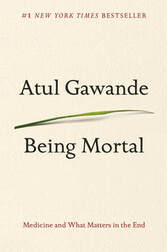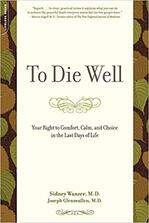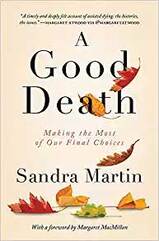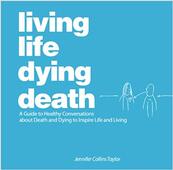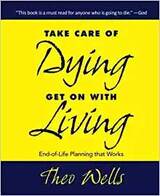 by Diana E. Williams Amplify Publishing (2024) ISBN: 979-8891380516 Traveling Solo is a dizzying narration of what can go wrong with the human body, while to others there may seem to be nothing wrong. The author, Diana Williams wrote it as a call to us to understand that some people, despite their appearing healthy, might with good reason wish not to live. She wants our laws governing medical aid in dying to be more inclusive. In her early sixties, after living for thirty years with an illness that was never diagnosed, she had to travel from California to Switzerland to have the peaceful death she wanted. The book explains her decision and the steps she had to take. After growing up on the East Coast and working for the Environmental Defense Fund, Diana moved to San Francisco. She’d been a competitive swimmer. She was an avid hiker. She enjoyed running. Then, all at once, without warning, she found she could no longer run. She was overcome by exhaustion. It was followed by unrelenting headaches, chills, night sweats, and brain fog. She’d gain a reprieve only to have the symptoms return. She was first diagnosed with multiple sclerosis, then late stage Lyme Disease, then toxic mold poisoning. A new drug would alleviate her symptoms, but not for long. She was treated by allopathic doctors, alternative practitioners, and several times, unwittingly by quacks. She had three-times-a-week fever treatments, IV infusions of vitamins and supplements, and consultations with nutritionists. She spent a month in a clinic in the Bahamas undergoing treatments with a “Z-7 Mitochondrial Disruptor” and a “Proton Frequency Radiator” only to learn that the treatments were based on unproven science. For every diagnosis, there was someone to dismiss it and suggest a different one. For every proposed treatment, there was someone to scoff. She was often despairing but never wanted to give up. As a young adult, Diana had backpacked through Zimbabwe and picked pears on a kibbutz in Israel. “My mantra,” she writes, “was a Paul Coelho quote: ‘If you think adventure is dangerous, try routine; it is lethal.’” She had a graduate degree in Counseling Psychology and interacted easily with people. In her late twenties, she found love with her second husband. They had two daughters. During a period when her health seemed stable, they went with their children on a year’s adventure from China to New Zealand. They lived inexpensively and made connections by volunteering. On their return, she worked to raise money to save the coral reefs. She founded a nonprofit organization providing job readiness training at California’s San Quentin Prison. Diana became progressively more ill and eventually had to stop working. A final devastating blow, came with an accident in which she was thrown off the hood of a car and sustained a traumatic brain injury. Her only relief was sleep, but as soon as she woke, she felt depression. Medications made her sleepy and dizzy. She admitted herself to a psychiatric hospital where it was learned that her depression was caused by physical damage to her brain tissue and that no treatment could alleviate it. Diana spent increasing amounts of time in bed. She withdrew from many of the activities she loved. The marriage, understandably, began to feel strain, and Diana and her husband separated. She felt acute loneliness. Some friends walked away. She kept a journal about what was happening and kept all of her medical records. And then, she began to explore ways to die. California allows medical aid in dying if one has a prognosis of six months or less to live, but her doctors could not agree on which disease she had, let alone how long she would live. Her only option, she decided, was to go to Dignitas in Switzerland, a nonprofit which since 1998, has made it possible to die with the help of a doctor. Dignitas does not accept everyone. They are careful to rule out mental instability. While they do not require a terminal prognosis, they do require that one have “an unendurable incapacitating disorder” or “a disease which will lead to death” or “unbearable and uncontrollable pain.” Diana applied, spent more than a year submitting medical records, and was accepted. She then needed the courage to tell her family. She loved her family and they loved her. How could she adequately explain to them that she had had a good life but could not go on? "Surrendering was an act of compassion for myself,” she writes. She learned of the deep love her daughters, now in their twenties, and mother felt for her (her father died before she could tell him of her plans). Her daughters, ex-husband who still cared for her, and mother traveled with her to Switzerland. Before leaving, she wrapped gifts to be sent to her daughters on their birthdays, with special notes, including a world map paper-clipped to a check, encouraging them to travel together. Diana opened her book, written in the first person singular until the last page, with a poem by Raymond Carver: And did you get what You wanted from this life, even so? I did. And what did you want? To call myself beloved, to feel myself Beloved on the earth. The poem suggests a definition of a good life that should work for us all. We should be able to leave when the struggle to live outweighs the joy. It should be our choice, not the choice of legislators. The final page tells us that she died on January 11, 2024. She was sixty-four.
Review by Susan Gillotti, PCV Board Member 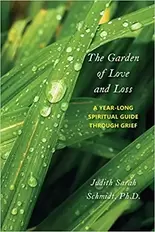 by Judith Sarah Schmidt, Ph.D. Full Court Press (2020) ISBN: 978-1946989796 Though the title might suggest it, this is not a religious book. It is a book for all of us. Its theme is our spirituality, but in a secular way. Judith Schmidt writes about the transcendental place within us that knows what it is we need in order to heal, and guides us towards accessing it. Her book offers fifty-two chapters containing an essay on an aspect of grief, a suggested meditation on how to think about it, and a prompt for writing in a journal. There are many stories of grief and how survivors have emerged from it. One can read the book as essays only, or move through it reading, meditating, and writing. 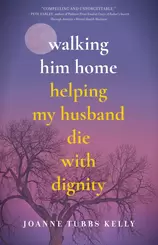 by Joanne Tubbs Kelly She Writes Press (2022) ISBN: 164742089X Walking Him Home is an account of what it’s like to have a neurodegenerative disease and reach the point of wanting to die. Most approved prescriptions for medical aid in dying are written for persons with cancer, whose six months prognosis is easier to determine. Joanne Tubbs Kelly describes the dying of her husband, Alan Kelly, from multiple systemic atrophy (MSA), a rare condition of the nervous system that damages the nerve cells in the brain and leads to a loss of balance, gastrointestinal issues, and incontinence. 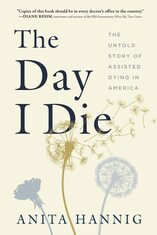 by Anita Hannig Sourcebooks (May 3, 2022) ISBN: 1728244919 Books about medical aid in dying are beginning to appear with frequency. It’s as if everyone now--doctors and patients alike--has recognized that we can’t keep pretending that we don’t die. Anita Hannig is a cultural anthropologist at Brandeis University where she teaches classes on the cultural dimensions of medicine and the end of life. 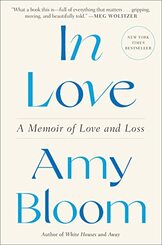 by Amy Bloom Random House (March 8, 2022) ISBN: 978-0593243947 I am inclined to call this book a “page-turner”. But how can that be? It is a book about the author’s husband, Brian, who, by the time he is diagnosed with Alzheimer’s disease, is also told that the process of sinking into severe dementia will be rapid. This vibrant man in his 50s is determined to end his life while he still recognizes and can interact with his wife and those he loves. Book Review: This is Assisted Dying: A Doctor’s Story of Empowering Patients at the End of Life4/26/2022
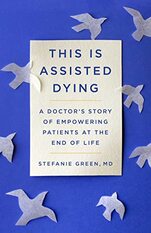 by Green, Stefanie, M.D. Scribner (March 29, 2022) ISBN: 166800478X Dr. Stefanie Green, president of the Canadian Association of MAID Assessors and Providers (CAMAP) opens her book with the question, “What if you could decide, at the end of your life, exactly when and where your death would happen? What if, instead of dying alone, in the middle of the night, in a hospital bed, you could be at home at a time of your choosing?” 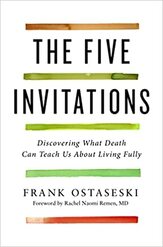 by Frank Ostaseski Flatiron Books, 2017 ISBN: 978-1250074652 One of the rewarding aspects of medical aid in dying that is mentioned by surviving family members is the opportunity it offers for meaningful conversation before the person they love dies. The day of dying is chosen intentionally, and in the weeks and days leading up to it, truth is spoken. I think about this a lot, because my mother-in-law died from toxic poisoning of the liver in her fifties and her doctors never told us that she was dying. They said, no doubt meaning to be helpful, that “there was always hope.” She died, sooner than expected and without warning, and we had no chance for final conversations. 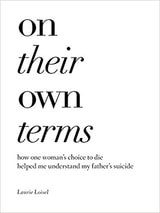 by Laurie Loisel Levellers Press, 2019 ISBN: 978-1945473982 What are our choices if we want to die but don’t live in a state where having a terminal illness will qualify us for medical aid in dying? For many people, there is a great fear of becoming helpless and dependent on others. They decide to die while the decision is still theirs. They commit suicide, often messy and almost always traumatic, or decide to stop eating and drinking and starve themselves. “On Their Own Terms” tells the stories of two very different people who took dying into their own hands and lets us see what it was like. 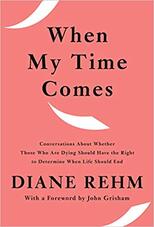 by Diane Rehm Alfred A. Knopf, 2020 ISBN: 978-0525654759 “Palliative and hospice care are amazing at making death easier for people. Yet there are limits. [They] do a really wonderful job; [but] we’ve forgotten that for some patients, the suffering goes on.” Those are the words of Dr. Lonny Shavelson, Director, Bay Area End of Life Options, as spoken in an interview with Diane Rehm, author of the book, When My Time Comes. |
Being Mortal
by Atul Gawande Medicine has triumphed in modern times, transforming birth, injury, and infectious disease from harrowing to manageable. But in the inevitable condition of aging and death, the goals of medicine seem too frequently to run counter to the interest of the human spirit. Nursing homes, preoccupied with safety, pin patients into railed beds and wheelchairs. Hospitals isolate the dying, checking for vital signs long after the goals of cure have become moot. Doctors, committed to extending life, continue to carry out devastating procedures that in the end extend suffering. Gawande, a practicing surgeon, addresses his profession's ultimate limitation, arguing that quality of life is the desired goal for patients and families. Gawande offers examples of freer, more socially fulfilling models for assisting the infirm and dependent elderly, and he explores the varieties of hospice care to demonstrate that a person's last weeks or months may be rich and dignified. Full of eye-opening research and riveting storytelling, Being Mortal asserts that medicine can comfort and enhance our experience even to the end, providing not only a good life but also a good end. To Die Well: Your Right to Comfort, Calm, and Choice in the Last Days of Life
by Sidney Wanzer, M.D. and Joseph Glenmullen, M.D. The information in To Die Well is both comforting and empowering. Knowing our rights to refuse treatment, as well as legal ways to bring about death if pain or distress cannot be alleviated, will spare us the frightening helplessness that can rob our last days of meaning and connection with others. Drs. Sidney Wanzer and Joseph Glenmullen do not shy away from controversy. They make clear what patients should expect of their doctors, including the right to sufficient pain medication even if it shortens life. They distinguish between normal sadness and depression. They also explain the ways to hasten death that are legal and possible for anyone, and those that require a doctor's help. A Good Death: Making the Most of Our Final Choices
by Sandra Martin A Good Death is timely, engaging and inspiring. In taking on our ultimate human right, award-winning journalist Sandra Martin charts the history of the right to die movement here and abroad through the personal stories of brave campaigners like Sue Rodriguez, Brittany Maynard and Gloria Taylor. Martin weighs the evidence from permissive jurisdictions such as the Netherlands, Oregon, California, Switzerland and Quebec and portrays her own intellectual and emotional journey through the tangled legal, medical, religious and political documentation concerning terminal sedation, slippery slopes, and the sanctity of life. Modern death has become a wrenching political dilemma, one that becomes more pressing as the population ages. A Good Death confronts our fears about dying, our struggle for meaning, and our dread of being trapped by voracious medical technology in a nightmare world that has abandoned caring in pursuit of curing, no matter the cost or the suffering to patients and their families. A Good Death asks the tough question none of us can avoid: How do we want to die? The answer will change your life-and your death. "Living Life Dying Death; A Guide to Healthy Conversations about Death and Dying"
by Jenifer Collins Taylor While some see death and dying as taboo subjects, author Jennifer Collins Taylor, MSW approaches the topics with gentle, thought-provoking prose, demonstrating that openly discussing death and dying is as important to the living as it is to those who may be nearing their final breaths. Her book, Living Life Dying Death: A Guide to Healthy Conversations About Death and Dying to Inspire Life and Living, accomplishes its mission through reflective conversation starters that encompass topics such as compassion, dreams, fear, goodbye, gratitude, grief, honesty, hope, humor, joy, mystery, pain, patience, peacefulness, philosophy of life, relationships, spirituality and many more. Most importantly, the book emphasizes that love is triumphant. In times of health readers are encouraged to reflect on, explore and express their beliefs on the very nature of life and living, death and dying. In times of health challenges the book can be used as a guide to initiate difficult conversations when faced with the possible decline and death of self, friend or loved one. In times of grief this book can be used to bring support and hope to the dynamic experience of grieving. Regardless of where readers are on the pathway from life to death, Living Life Dying Death should be readily available to guide, encourage and inspire healthy conversations about death, dying, grief and loss. Living Life Dying Death calls readers to action, prompting them to find the courage and confidence to more openly discuss death, dying, grief and loss. This book stimulates the reader to embrace living well and encourages those approaching life's final journey to trade fear for love, comfort, forgiveness and a sense of awe. Courageous conversations about life and death allow the strength and beauty of the human spirit to shine. Take Care of Dying---Get On with Living: End-of-life Planning that Works
by Theo Wells The greatest gift you can give your family and friends is your carefully thought out plan for handling the unexpected events at the end of your life. Here—all in one place—are the basic decisions you need to make as long as you’re living: |
Proudly powered by Weebly

